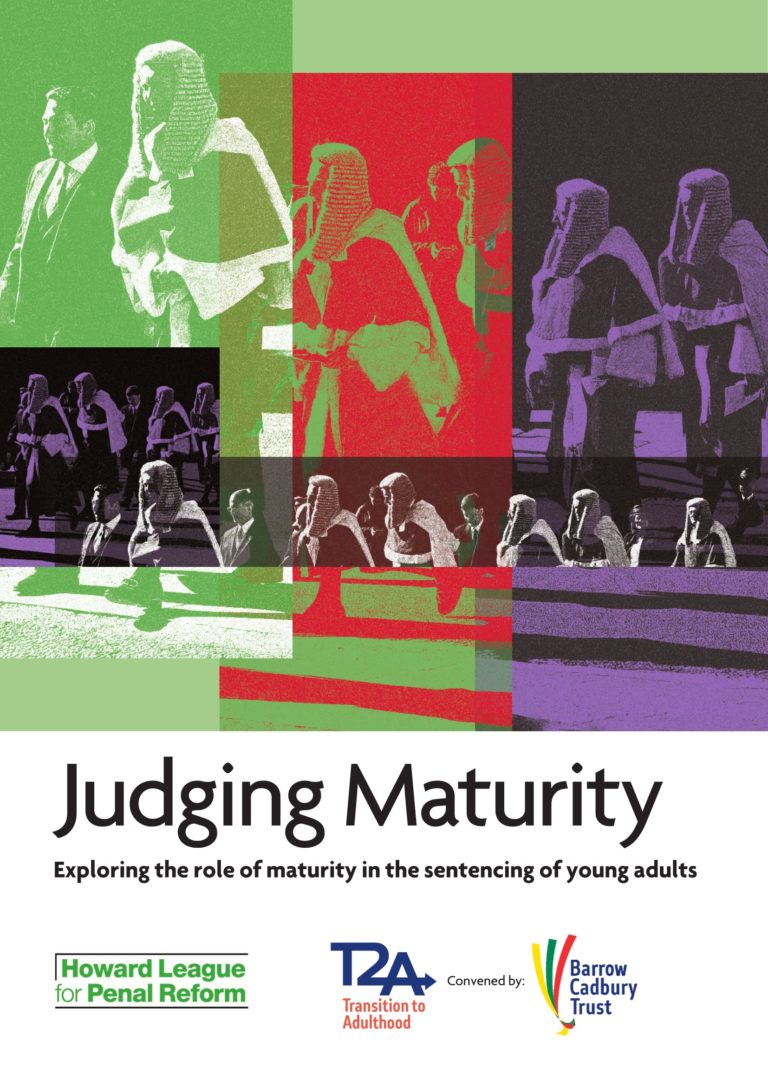Publications · Young People
Judging maturity
Exploring the role of maturity in the sentencing of young adults

-
Published: 2017
-
Pages: 30
-
Publisher: Howard League for Penal Reform and Transition to Adulthood (T2A) Alliance
Downloads
Judging maturityA substantial and growing evidence base has found that young adults aged 18-25 are a distinct group, largely because they are still maturing. Reaching adulthood is a process, not an event, and the key markers of adulthood, such as independent living, employment and establishing relationships, happen at different times for different young people.
Young adults face an increased risk of exposure to the criminal justice system compared to older adults. Contact with the criminal justice system also raises the risk of adverse outcomes for young people and increases their risk of reoffending. Although hundreds of thousands of young adults are sentenced each year, in contrast to the wealth of guidance and case law concerning the sentencing of children, there is no set of principles to guide sentencers through this process or ensure that they take a tailored approach to young adults. The sentencing process presents an opportunity to apply the wealth of expertise concerning the development of young adults to achieve better outcomes.
Senior court judgments and guidance concerning children, which acknowledge the reduced culpability of a person who is not yet fully mature, set a blueprint for an approach that could be consolidated and applied to young adults.
This research explores 174 senior court judgments with a view to capturing current judicial treatment of young adults, with a particular focus on how judges view the concept of maturity.
In addition, the research explored a number of references by the Attorney General in respect of sentences deemed to be unduly lenient and judgments reviewing the positive maturation of young adults who committed the offence of murder as a child. These cases illustrate that the courts are capable of taking a nuanced and thoughtful approach based on the actual development of the individual.
The research suggests that professionals need to be encouraged to bring these factors to the court’s attention and sentencers need to be encouraged to consider these factors of their own will. It also indicates that guidelines can make a positive difference and empower sentencers to reduce sentences on account of lack of maturity and/or age. To bring about this change, the Sentencing Council should work towards developing formal sentencing principles for young adults, similar to the principles that are in place for children.
-
Join the Howard League
We are the world's oldest prison charity, bringing people together to advocate for change.
Join us and make your voice heard -
Support our work
We safeguard our independence and do not accept any funding from government.
Make a donation